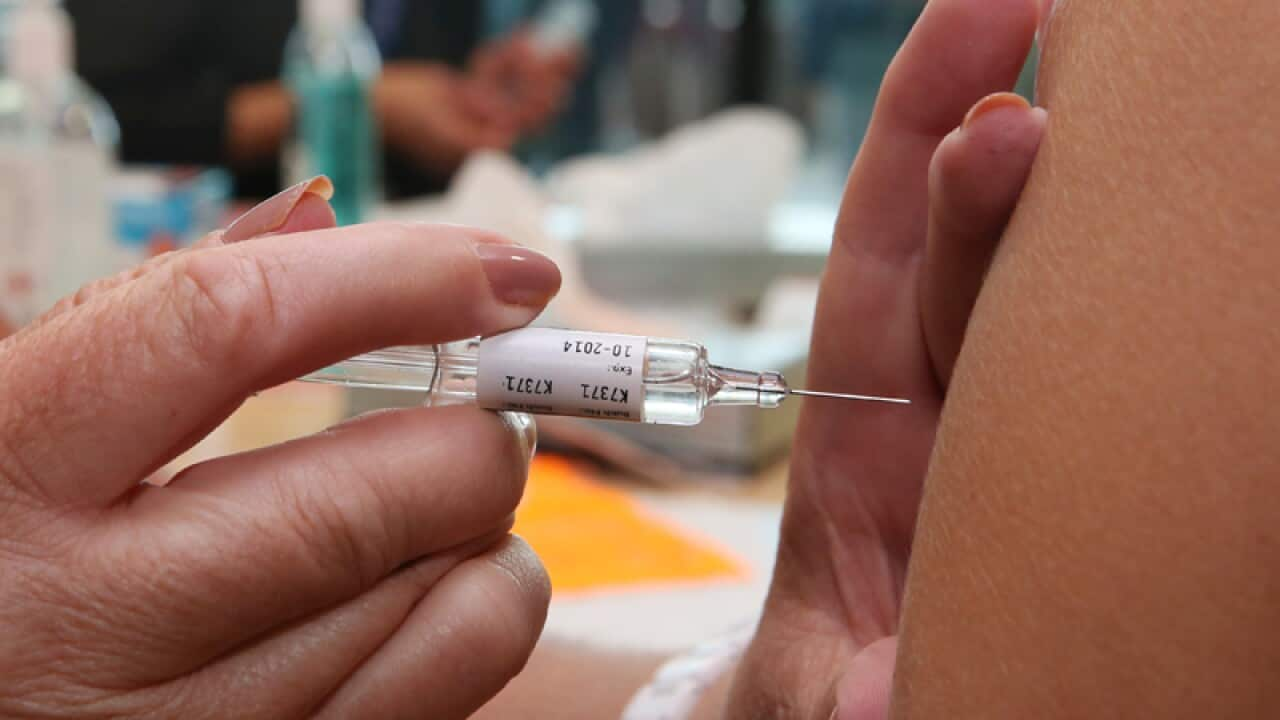UK parents are calling on that country's National Health Service to expand the meningitis B vaccine to all children.
The UK was the first country in the world to introduce the vaccine at the end of last year, but it is only available to children born on or after July 1, 2015.
Following the death of two-year-old Faye Burdett on February 14 from meningitis B, a campaign has sprung up, headed by her mother Jen, to see the vaccine made available to all young children.
Mrs Burdett has shared heartbreaking pictures of her daughter in hospital, covered with a rash that is associated with the disease.
Meningitis Now chief executive Sue Davie told the BBC the way the vaccine had been introduced did not go far enough.
"Although the introduction of the Men B vaccine on the childhood immunisation scheme for young babies was a momentous achievement, saving thousands of lives, there are still so many, like Faye, left unprotected," she said.
"We continue to campaign to see the Men B vaccine rolled out, particularly to at-risk groups, to insure a future where no-one in the UK losses their life to meningitis."
A UK Health Department spokesman told the BBC a date to determine eligibility was always attached to new immunisation programs.
"[It is] a decision based on the best independent clinical recommendation to ensure we can protect those children most at risk of Men B," he said.
"When our nationwide Men B vaccination programme was introduced last year, England became the first country to protect our babies from this devastating disease."
But the vaccine is still some time away from being included in Australia's National Immunisation Program (NIP).
The meningitis B vaccine Bexsero, made by GlaxoSmithKline, is available for private purchase and can cost between about $130 and $200 for each dose.
A spokesperson for the federal Health Department told SBS News the vaccine's sponsor Novaris has made several applications to the Pharmaceutical Benefits Advisory Committee to have it included on the NIP.
"On each occasion, the application was rejected on the basis of clinical uncertainty, that is, where the clinical evidence for its effectiveness has not been demonstrated in the applicant's submission," the spokesperson said in a statement.
"The PBAC most recently considered Bexsero at its July 2015 meeting."
A public summary from the meeting said the application was rejected because "the re-submission did not address multiple uncertainties in relation to the clinical effectiveness of the vaccine against the disease when delivered in a vaccination program".
The committee also raised concerns about the long-term effectiveness of the vaccine.
Since 2003 there have been 106 deaths from meningitis B out of more than 2,500 cases.
The number of cases each year has been steadily declining: from 293 in 2003, to 111 in 2015.
Related reading:

Vaccination rates too low to stop disease
Share


